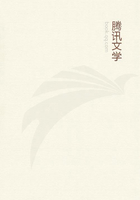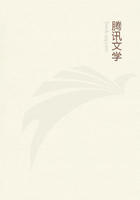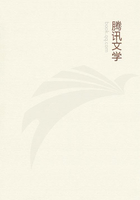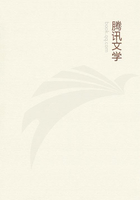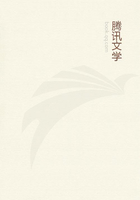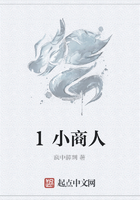He watched their flight; bird after bird: a dark flash, a swerve, a flutter of wings. He tried to count them before all their darting quivering bodies passed: six, ten, eleven: and wondered were they odd or even in number. Twelve, thirteen: for two came wheeling down from the upper sky.
They were flying high and low but ever round and round in straight and curving lines and ever flying from left to right, circling about a temple of air.
He listened to the cries: like the squeak of mice behind the wainscot:a shrill twofold note. But the notes were long and shrill and whirring, unlike the cry of vermin, falling a third or a fourth and trilled as the flying beaks clove the air. Their cry was shrill and clear and fine and falling like threads of silken light unwound from whirring spools.
The inhuman clamour soothed his ears in which his mother's sobs and reproaches murmured insistently and the dark frail quivering bodies wheeling and fluttering and swerving round an airy temple of the tenuous sky soothed his eyes which still saw the image of his mother's face.
Why was he gazing upwards from the steps of the porch, hearing their shrill twofold cry, watching their flight? For an augury of good or evil?
A phrase of Cornelius Agrippa flew through his mind and then there flew hither and thither shapeless thoughts from Swedenborg on the correspondence of birds to things of the intellect and of how the creatures of the air have their knowledge and know their times and seasons because they, unlike man, are in the order of their life and have not perverted that order by reason.
And for ages men had gazed upward as he was gazing at birds in flight.
The colonnade above him made him think vaguely of an ancient temple and the ashplant on which he leaned wearily of the curved stick of an augur.
A sense of fear of the unknown moved in the heart of his weariness, a fear of symbols and portents, of the hawk-like man whose name he bore soaring out of his captivity on osier-woven wings, of Thoth, the god of writers, writing with a reed upon a tablet and bearing on his narrow ibis head the cusped moon.
He smiled as he thought of the god's image for it made him think of a bottle-nosed judge in a wig, putting commas into a document which he held at arm's length, and he knew that he would not have remembered the god's name but that it was like an Irish oath. It was folly. But was it for this folly that he was about to leave for ever the house of prayer and prudence into which he had been born and the order of life out of which he had come?
They came back with shrill cries over the jutting shoulder of the house, flying darkly against the fading air. What birds were they? He thought that they must be swallows who had come back from the south. Then he was to go away for they were birds ever going and coming, building ever an unlasting home under the eaves of men's houses and ever leaving the homes they had built to wander. Bend down your faces, Oona and Aleel.
I gaze upon them as the swallow gazes Upon the nest under the eave before He wander the loud waters. A soft liquid joy like the noise of many waters flowed over his memory and he felt in his heart the soft peace of silent spaces of fading tenuous sky above the waters, of oceanic silence, of swallows flying through the sea-dusk over the flowing waters.
A soft liquid joy flowed through the words where the soft long vowels hurtled noiselessly and fell away, lapping and flowing back and ever shaking the white bells of their waves in mute chime and mute peal, and soft low swooning cry; and he felt that the augury he had sought in the wheeling darting birds and in the pale space of sky above him had come forth from his heart like a bird from a turret, quietly and swiftly.
Symbol of departure or of loneliness? The verses crooned in the ear of his memory composed slowly before his remembering eyes the scene of the hall on the night of the opening of the national theatre. He was alone at the side of the balcony, looking out of jaded eyes at the culture of Dublin In the stalls and at the tawdry scene-cloths and human dolls framed by the garish lamps of the stage. A burly policeman sweated behind him and seemed at every moment about to act. The catcalls and hisses and mocking cries ran in rude gusts round the hall from his scattered fellow students.
-- A libel on Ireland!
-- Made in Germany.
-- Blasphemy!
-- We never sold our faith!
-- No Irish woman ever did it!
-- We want no amateur atheists.
-- We want no budding buddhists.
A sudden swift hiss fell from the windows above him and he knew that the electric lamps had been switched on in the reader's room. He turned into the pillared hall, now calmly lit, went up the staircase and passed in through the clicking turnstile.
Cranly was sitting over near the dictionaries. A thick book, opened at the frontispiece, lay before him on the wooden rest. He leaned back in his chair, inclining his ear like that of a confessor to the face of the medical student who was reading to him a problem from the chess page of a journal. Stephen sat down at his right and the priest at the other side of the table closed his copy of The Tablet with an angry snap and stood up.
Cranly gazed after him blandly and vaguely. The medical student went on in a softer voice:
-- Pawn to king's fourth.
-- We had better go, Dixon, said Stephen in warning. He has gone to complain.
Dixon folded the journal and rose with dignity, saying:
-- Our men retired in good order.
-- With guns and cattle, added Stephen, pointing to the titlepage of Cranly's book on which was printed Diseases of the Ox .
As they passed through a lane of the tables Stephen said:
-- Cranly, I want to speak to you.
Cranly did not answer or turn. He laid his book on the counter and passed out, his well-shod feet sounding flatly on the floor. On the staircase he paused and gazing absently at Dixon repeated:
-- Pawn to king's bloody fourth.
-- Put it that way if you like, Dixon said.
He had a quiet toneless voice and urbane manners and on a finger of his plump clean hand he displayed at moments a signet ring.

